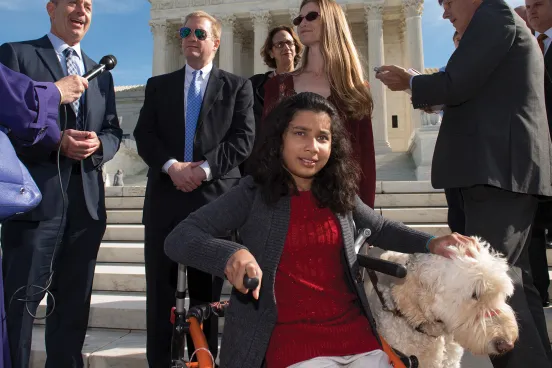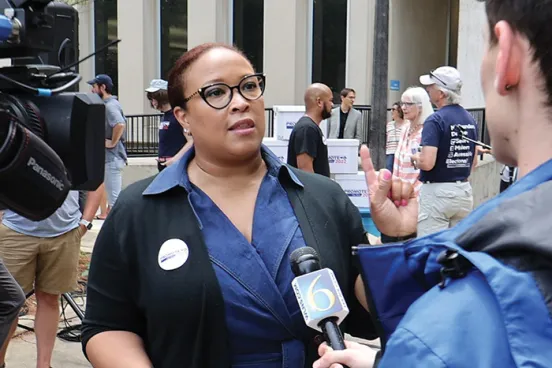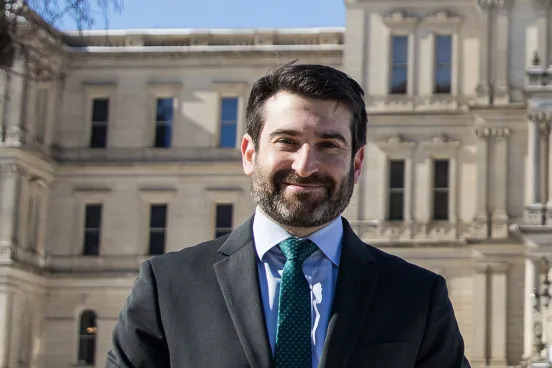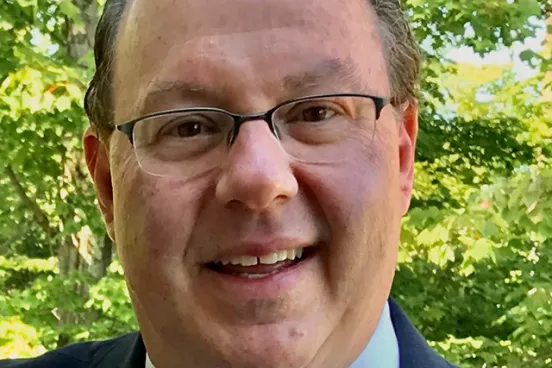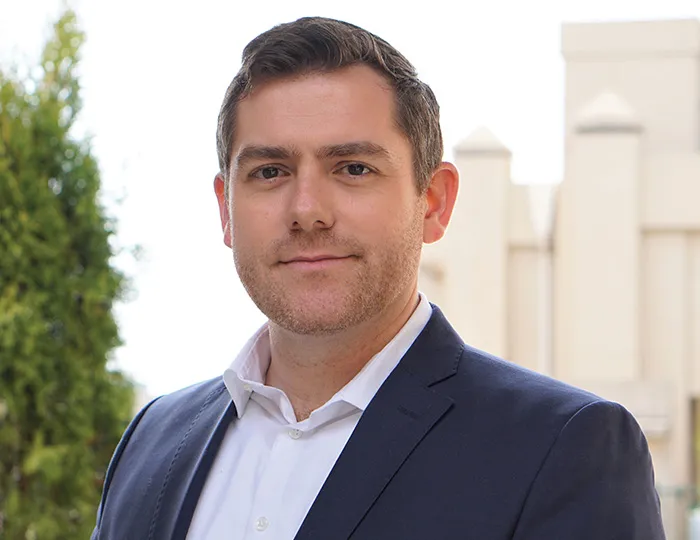
Matt Raymer, ’08, has a Jim Harbaugh bobblehead in his office. Prominent election lawyer and fellow Wolverine Charlie Spies, AB ’95, sent it to Raymer with a note encouraging him to attack the 2016 election with an enthusiasm unknown to mankind—a nod to Harbaugh’s mantra.
Raymer was general counsel at the National Republican Senatorial Committee (NRSC), and the team did just that. Republicans successfully defended 22 U.S. Senate seats to retain control of the chamber on the night they also took control of the White House and kept the majority in the House of Representatives.
“When I came to the NRSC, no one outside the party thought we would keep the Senate [majority],” Raymer says. With classic locker-room mentality, the team printed articles predicting the magnitude of Republican defeat and hung them in the office. “We had that sense of being in the trenches together and wanting to work hard, and my colleagues were some of the smartest people in politics. It was high-profile, high-intensity work, and lo and behold, we kept the Senate.”
It was a dream job at a great time for Raymer, a political junkie since high school. After earning an undergraduate degree in history and government at Dartmouth, he worked as a consultant in Washington, D.C., and noticed that people who had the jobs he wanted also had law degrees. So he came to Michigan and developed a passion for football, thanks to his first game-day experience, and for election law, thanks to Professor Ellen Katz.
During his 1L summer in 2006, Raymer interned for Don McGahn, who then was the general counsel for the National Republican Congressional Committee (NRCC) and currently is White House counsel. Raymer helped the NRCC’s legal team gear up for the November midterm elections—and didn’t want to leave at summer’s end. “Fall was going to be exciting,” he says.
Raymer worked with Michigan Law to craft an externship that kept him at NRCC through the election.
He says that experience was pivotal in getting him to where he is now. “It launched me into the world of election law, which is a pretty small world, and I will always be grateful to Michigan Law for going out of its way to help me do that.”
That small-world aspect was advantageous when Raymer was an associate at BakerHostetler LLP in D.C. While catching up with classmate Megan Sowards Newton, ’08, he said he was considering his next career move.
Soon after, Newton called to say she was leaving her job as general counsel at the NRSC—she later became general counsel for Jeb Bush’s presidential campaign—and she had included his name on a list of replacements. Several interviews later, he had the job.
In the wake of the November elections, Raymer left the NRSC to become vice president and general counsel at the Republican State Leadership Committee (RSLC)—the country’s largest caucus of Republican leaders elected to state government.
The RSLC focuses on recruiting candidates and helping to elect state legislators, secretaries of state, judges, and lieutenant governors nationwide.
“It’s a great challenge as a lawyer,” he says. “With federal candidates and committees, you’re mainly dealing with one set of [federal] election laws. With the states, you’re dealing with 50, and you have to ensure compliance with them all.”
It’s an exciting time to join the RSLC, says Raymer. “So much of what actually affects voters’ lives happens in the states, and the states are the breeding grounds for the next generation of national leaders. Republicans are at all-time highs right now at the state level, and we know the Democrats want to change that.”
Regardless of drama inside the Beltway, Raymer says the key to maintaining the Republican Party’s success is relatively simple.
“Every race is about having good candidates who speak best to the issues that matter to voters. As long as our candidates do that, we’ll continue to win.” He also says the current political climate might be here to stay. “There are so many ways now for people to be engaged politically through social media, so in a sense, our democracy is more ‘small d’ democratic than ever. We can have sharp political disagreements, yet we still have peaceful transitions of power. That’s what makes our country so incredible.”



